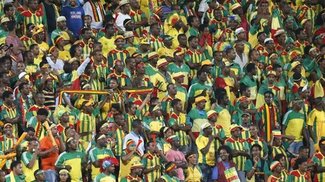
The FIFA ranking (or to give them their full title the FIFA/Coca Cola World Ranking) is largely a marketing exercise and is of little consequence. Teams from different continents rarely play each other. In the World Cup finals, teams from various continents are generally kept apart in the group stage draw. This means the overall ranking has little impact, with a country’s position relative to other countries in the same confederation being the critical aspect. For this reason, comparing positions across confederations is of limited value.
It does however prompt comparison of how countries accumulate ranking points and inevitably calls into question the conduct of competitive qualification tournaments in each confederation. I have written before about my views on the unfairness of the African qualification process relative to Europe and South America. The African and European contexts are similar to the extent that both confederations have about the same number of affiliated members (54 and 55 respectively). The root of the unfairness lies in huge disparity between the number of qualifiers each continent has – Europe 13 has spaces (not including hosts Russia) and Africa has 5.
The African qualifying campaign for Russia 2018 has already begun, and for 13 countries has already ended. In the middle of this month it will have ended for another 20 countries – this is 30 months before the finals will be held. For me this was brought home when looking at the fixtures for my football-mad son, who is Ethiopian, and seeing that they managed to overcome Sao Tome e Principe after being surprisingly beaten 1-0 in the first leg. Their reward is a game against Congo (the eighth ranked African team) in two weeks' time. It seems he has a much better chance supporting Ireland.
Could football fans and national associations in Europe countenance a situation where the lowest 26 ranked teams would have a play-off to continue with World Cup qualifying and risk being eliminated from the World Cup in October 2015 for a 2018 World Cup Finals tournament? The bottom 26 nations in Europe currently includes Turkey, Serbia, Hungary, Bulgaria, Finland, Norway, and more importantly the Republic of Ireland.
The first play-offs in Africa were held last month and 13 countries have been eliminated from the 2018 World Cup – having played two matches, one at home. The second round puts the 13 winners from the first round with the remaining 27 African nations who play in a home and away qualifier – the 20 successful teams will progress to play in five groups of four teams with the winner of each group going to the finals in Russia. This means the majority of African countries (33 out of 53 in the current campaign) have less than four World Cup qualifying matches and two at home.
(This contrasts hugely with the South American qualifying campaign where teams play 18 games in a league format with the top four In fact, Ecuador and Uruguay both won less than half of their matches (7 from 16) in qualifying for the 2014 World Cup – there were 16 games in qualifying last time because Brazil qualified as hosts).
The argument of course is that the European teams are better and so deserve more places at the finals (one hopes it is not based on market size or Asia and Africa will soon be entitled to a lot more spaces on that criteria). The FIFA rankings can be used to justify the superiority of the European (and South American) nations. However, this is a circular argument where nations can achieve more points by playing more competitive games, with some of them against higher ranking teams). Playing these (and more of them) fixtures makes teams better – or at least gives them an opportunity to improve more rapidly. Is it possible that Wales’ dramatic improvement from 112th in the world in 2010 to 8th in 2015 could have been achieved in a qualifying environment like Africa’s? This shows the benefit of having games against the 'best' to develop players at international level.
 RSS Feed
RSS Feed